Friends,
I think I am a little burn out so I will keep this short. I attended many social gatherings in July, which I think is the cause, but I just need more alone time than usual to recalibrate and I will be fine. Without further ado, here’s everything I read in July.
Everything I Read in July
Head by the Ceiling by Anthony Shieh
A group of employees from a network company based in Japan find themselves the target of a malevolent monster after breaking into a protected cave. Each employee dies a violent death one after the other and their spirit is collected by the monster. The title Head by the Ceiling is from the way these employees die, their head severed from their body and nailed into the ceiling.
I picked this book up because my brother lent me a couple of books by Filipino authors and I decided to read these books at least one a month. My friends, I didn't like this book at all but I finished it because it was just 200 pages. I sent my brother rapid fire messages on how bad this book was.
This book is every bit a cliche. The queerness of some of the characters felt forced. The backstory was unnecessary. The dialogue and the character interactions felt unnatural. The cause of the group's problem could have easily been avoided if the characters only had common sense. I hate characters that don't have common sense in this day and age. I can go on and on about how this book is so bad but I will stop there, seems unfair for a debut author. But, I think the author can benefit from reading more, more diverse books. This book would make a great movie though.
Exit Lane by Erika Veurink
Teddy and Marin met on the day of their graduation when a mutual friend set them up for a road trip from Iowa to New York. They were both obviously attracted to each other from the first meeting but Marin choose to keep her distance from Teddy. Over eight years, we see both of them drift in and out each other's lives but neither admits how they feel for one another. But as all romance books go, they end up with each other.
My favorite love stories are those where the couple pine for each for years (like Persuasion, Love, Rosie, and The Seven Husband of Evelyn Hugo) and Exit Lane really hit the spot. This book felt like One Day by David Nichols. I haven't read it yet but I imagine it's like this book. It has the same feels and especially with the time jumps and abrupt chapter endings.
I picked this book up because I wanted to read something light for my flight the following morning. I had If on a winter night's a traveller as my next book but I didn't want to read it in a transitory place like in an airport. I wanted to read it some place where I will be comfortably settled, aka, in my house, in my couch. And I so I picked something light and choose Exit Lane. But boy, it never even reached the airport because I devoured it in one day, stealing bits of time at work. During my 1 hour lunch break, I poured a glass of wine, melted into my couch, and allowed Teddy and Marin's story to consume me. I felt a deep sense of satisfaction I rarely feel these days during that lunch break. I guess it was about being absorbed deep in a book, in my couch, with a wine in hand. I looked back at my husband who was working on the table behind me, smiled, and told him that this is the life I want.
If on a Winter's Night a Traveller by Italo Calvino, translated by William Weaver
A reader picks up a book and starts reading it only to discover the next chapter is the start of a different book. You resolve to go back to the bookstore the next day and request for the real book. The owner gives you a replacement but realizes soon that the replacement book is a different novel altogether. You meet a woman who has the same dilemma as you and the two of you embark on a journey to find the real book. The further you go into your journey, you encounter a new book every time. And so, in the end, you have a total of ten beginning chapters of a book.
If on a winter night's a traveller is a fun book wherein Calvino plays with the reader. As a reader, we find ourselves in between beginning chapters of several books that our two characters encounter and the journey they find themselves in search of the original book. The entire novel is meta and I want to know Calvino's thought process when he started forming this novel. I feel like he had several stories in his head but was too lazy to make them into a full-length novel. Instead, he created this novel with several stories in it.
Calvino takes us into every reader's journey - from the moment we spot a book in a bookstore and decide to take it home, to the moment we flip the first page, and further, as to how the book changes us.
The book essentially describes the act of reading, writing, the publishing industry and its readers, a writer's agonies, and literature in general. Calvino takes a dig towards highly-commercialized writers who churns several books in a year - writers who have became slave laborers to the act of writing. He criticizes how modern readers examine and dissect every part of a novel rather than just enjoy a book. He ponders the blurring line between the publishing industry and its readers, a relevant topic even today because of the advent of social media.
I ended up bringing this book to the airport despite not wanting to read this book in a temporary place. I wanted to read it sinking in my couch.
If on a winter night's a traveller is the inspiration for one of my all time favorite books - Cloud Atlas by David Mitchell. They are structured the same but they feel different. Although Mitchell's structure was more brilliant, Cloud Atlas wouldn't exist without If on a winter night's a traveller.
Giovanni's Room by James Baldwin
David, a young man in 1950s Paris, meets Giovanni, a handsome Italian barman. The two start an intense affair despite David having a fiancée. Eventually, David's fiancée arrives back in Paris and David decides to break up with Giovanni, leading to a devastating consequence.
This is a very popular book but I never read any review saying how dark this book is. There was so much pain and anguish! I was not in the right headspace for this book but I devoured it in less than 48 hours because of the wonderful prose. Every emotion is so fleshed out - the joy, shame, love, sexuality, hatred. I was just so swept away.
Another thing I rarely see in reviews is the character study of Hella. She's independent and self-assured. Kudos to her for leaving David right away when she found out his secret. At the beginning of the book, Hella was just a shadow lingering in the pages, but when she arrived in the scene, wow, she was a force.
Letters to a Young Poet by Rainer Maria Rilke, translated by Charlie Louth
This is my second reading of this book. When I read Letters to a Young Poet for the first time last year, I decided to reread it every year on my birthday. I still love it. I think it's a book worthy to read on a birthday or New Year or any day wherein you feel like you want to be reborn. To me, the book serves as a reminder to create a rich inner life instead of seeking for external validation. I treat this new, little ritual of mine as a yearly refresher. I hope to keep this up and I hope this book will stand the test of time.
I don't think I got anything new from this reading but it reminded me why I love this short little book so much.
An Artist of the Floating World by Kazuo Ishiguro
An Artist of the Floating World is a simple story about an old man contemplating his career during retirement. It’s also about him grappling with the changes of a new Japan after the war and the ideals of the young today. At the start of the book, we see Masuji Ono discussing with his older daughter the marriage prospects of his younger daughter. His older daughter, Setsuko, suggests, or rather insinuates, that his father might want to talk with his former colleagues to clean up his “past" since Setsuko sees this “past” as the reason for the prior failed marriage prospect. The practices around marriage in Japan during this time was that families would hire private investigators to do a background check on the other family. What is marriage after all, if not alliances, and so of course you would do your due diligence towards the other party. What this “past” meant was Ono’s contribution to Imperialist Japan that lead to the death of thousands of Japanese fighting for this unworthy cause. This marriage plot drives forward Ono’s rumination about his career. We see him reason out his guilt and his denial to accept responsibility for his war contributions.
What I love about Ishiguro's books is that he gives you a lot to ponder on long after you finished the book. This is Ishiguro's second book and I can say early on that he was already a good writer and his signature style that I came to know in his later books is already there. Like so many of his books, An Artist of the Floating World deals with the fallibility of our memories, making Ono an unreliable narrator. We see him shift his narratives in order to downplay his wrongdoings. I'd have one opinion of Ono while reading something and have a different one long after I read that thing. I was empathetic about what he was going through but I had changed my opinion of him days after reading the book and upon reflection. The reading journey I went through from this point to that is what makes him such a good writer. This review doesn't do justice to the way I felt when reading this book but I hope I can write more after several rereads in the future. I also know it's a book where I will have different realizations after every rereading.
Ono's struggle is such a unique topic that I rarely come across in fiction. An Artist of the Floating World is similar in themes to The Remains of the Day, albeit a bit elevated. Even though the themes of his books are kind of the same, he varies it in setting. I am looking forward to reading more Ishiguro and I currently have The Buried Giant on my shelf which I plan to read in September.
Have you read any of the books I mentioned above? If yes, let me know which ones and if you liked them.
What I’m reading for Women in Translation Month
Currently joining a read-along of My Brilliant Friend hosted by
. I am already 3/4 of the way into the book and I am loving it. I also love talking to Kolina about it. Every moment I read something wonderful I fight the urge to send Kolina a message to discuss something but I feel like I’m already being annoying lol.Here are some other translated works of fiction by women that I’ve read this year in case you are looking for more WIT month recommendations:
Here are more recommendations from my friends:
what I'm reading for Women in Translation month - horror edition by
Recommendations for Women in Translation Month by
In case you missed this..
Everything in this newsletter is free for now. And so, every open, like, comment, or restack means a lot to me and I thank you all for your support. If you’d like to further support me, buy me a coffee so that I can continue this work. Thanks again for reading and remember, folks, to read books out of the social media algorithm!


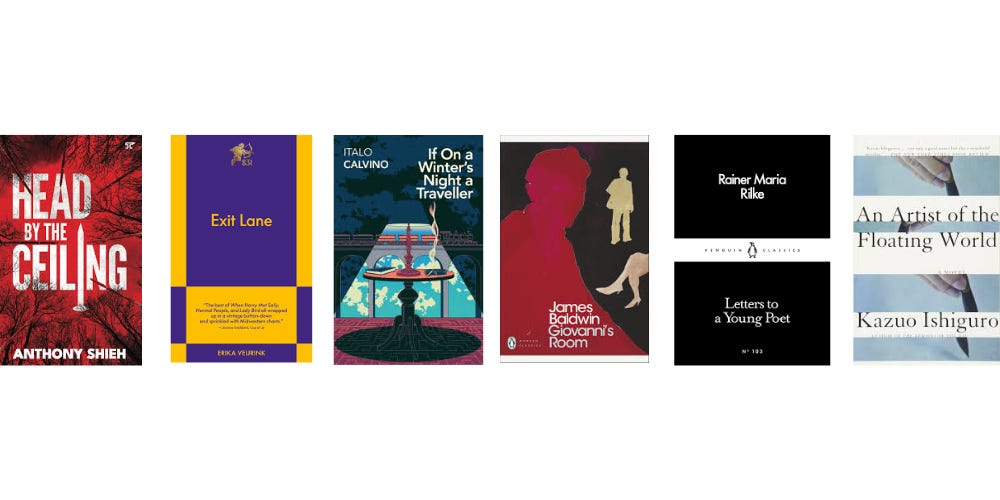
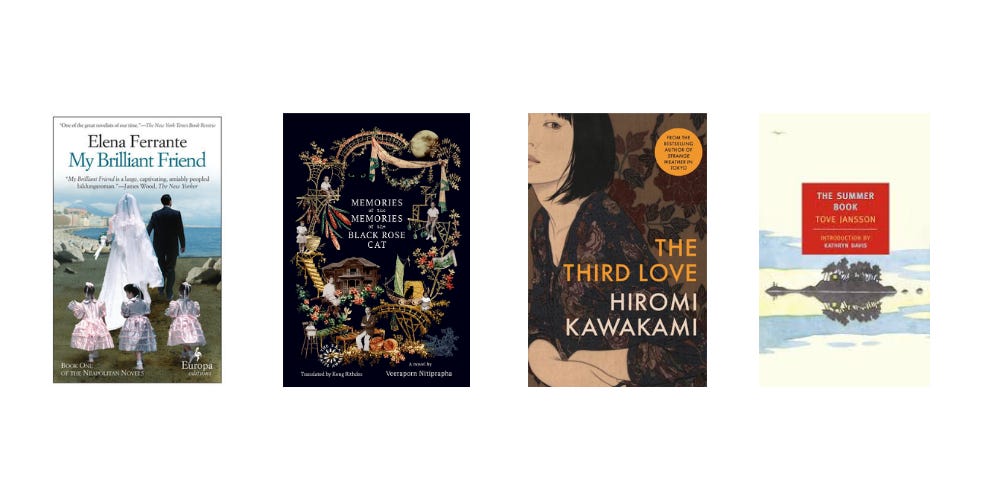
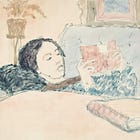
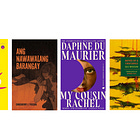
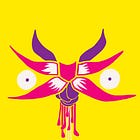
FIGHT THAT URGE NO LONGER! Our chats are literally breathing life into me. I want to know your opinions and worries at every turn! Obviously I'm happy I'm doing Ferrante all month because it's fun, but I kind of wish I was reading other translated works. Your selections sound interesting, as do all the translated books you listed.
Another reminder to pick up An Artist of the Floating World. Thank you! Can't wait to hear from you in my DMs in 5 minutes 🤣 (I'm serious, I can't wait).
Hope you enjoy My brilliant friend!